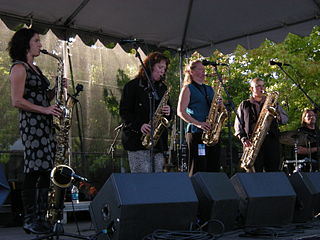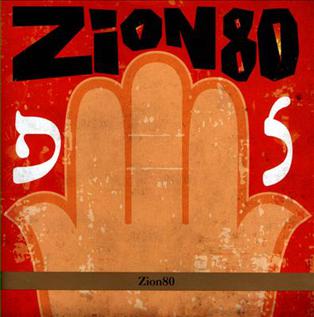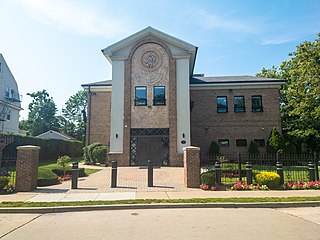Related Research Articles

Klezmer is an instrumental musical tradition of the Ashkenazi Jews of Central and Eastern Europe. The essential elements of the tradition include dance tunes, ritual melodies, and virtuosic improvisations played for listening; these would have been played at weddings and other social functions. The musical genre incorporated elements of many other musical genres including Ottoman music, Baroque music, German and Slavic folk dances, and religious Jewish music. As the music arrived in the United States, it lost some of its traditional ritual elements and adopted elements of American big band and popular music. Among the European-born klezmers who popularized the genre in the United States in the 1910s and 1920s were Dave Tarras and Naftule Brandwein; they were followed by American-born musicians such as Max Epstein, Sid Beckerman and Ray Musiker.

The Tiptons Sax Quartet, previously known as The Billy Tipton Memorial Saxophone Quartet, is a jazz saxophone quartet from Seattle, Washington. The ensemble consists of five members. The Tiptons are an internationally renowned saxophone quartet with drums, celebrating over 30 years as a band. Amy Denio is joined by co-leader Jessica Lurie, Sue Orfield, Tina Richerson and Robert Kainar from Salzburg, Austria. The Tiptons' material ranges from micro-Big Band to Gospel, Bluegrass to Balkan, whimsical Chamber Jazz, and nocturnal Funk to Free Jazz Improvisation using saxophones, clarinet, their voices, drums, and inventive percussion to create a genre-busting ‘world soul’ sound. The band takes its name in honor of Billy Tipton, a 20th-century professional saxophonist and transgender man who upon his death was revealed to have been assigned female at birth.
The Klezmorim, founded in Berkeley, California, in 1975, was the world's first klezmer revival band, widely credited with spearheading the global renaissance of klezmer in the 1970s and 1980s. Initially featuring flute and strings—notably the exotic fiddling of co-founder David Skuse—the ensemble reorganized into a "loose, roaring, funky" brass/reed/percussion band fronted by co-founder Lev Liberman's saxophones and founding member David Julian Gray's clarinets. As a professional performing and recording ensemble focused on recreating the lost sounds of early 20th century klezmer bands, The Klezmorim achieved crossover success, garnering a Grammy nomination in 1982 for their album Metropolis and selling out major concert venues across North America and Europe, including Carnegie Hall and L'Olympia in Paris. The band performed steadily until 1993, regrouping in 2004 for a European tour.

The Klezmatics are an American klezmer music group based in New York City, who have achieved fame singing in several languages, most notably mixing older Yiddish tunes with other types of more contemporary music of differing origins. They have also recorded pieces in Aramaic and Bavarian.
Simcha is a Hebrew word that means gladness, or joy, and is often used as a given name.

Jessica Lurie is an American composer, performance artist and woodwind player, originally hailing from Seattle and now living in Brooklyn, New York.

David Krakauer is an American clarinetist who performs klezmer, jazz, classical music, and avant-garde improvisation.
Aharit Hayamim is an Israeli reggae fusion band formed in Jerusalem in 2002.
Eden Daniel Pearlstein, better known by his stage name Eprhyme, is an American Jewish rapper and producer based in Brooklyn, New York. While attending The Evergreen State College in Olympia, Washington, he became involved with the Olympia music scene as half of the hip hop duo Saints of Everyday Failures, with which he released two albums. According to Nic Leonard of the Weekly Volcano, Eprhyme "played a major roll [sic] in the creation of the Olympia hip-hop scene." He was noticed by local independent label K Records, who released his first two singles, "Punklezmerap" and "Shomer Salaam". He then released his debut album, Waywordwonderwill (2009), through Shemspeed Records, before returning to K Records for his follow-up, Dopestylevsky (2011). He is currently part of the alternative hip hop groups Darshan, with vocalist Basya Schechter, and Ruthless Cosmopolitans, with Jon Madof.
The Diaspora Yeshiva Band was an Israeli Orthodox Jewish rock band founded at the Diaspora Yeshiva on Mount Zion, Jerusalem, by baal teshuva students from the United States. In existence from 1975 to 1983, the band infused rock and bluegrass music with Jewish lyrics, creating a style of music it called "Hasidic rock" or "Country and Eastern". The band was very popular on college campuses in the early to mid-1980s, and was well known in Jerusalem for its Saturday-night concerts at David's Tomb. It had a considerable influence on contemporary Jewish religious music, inspiring later bands such as Blue Fringe, 8th Day, Reva L'Sheva, Soulfarm, the Moshav Band, and Shlock Rock. Fifteen years after it disbanded, band leader Avraham Rosenblum revived the band under the name Avraham Rosenblum & Diaspora and produced several more albums.

Adramelech: Book of Angels Volume 22 is the second album by Zion80, a musical ensemble led by guitarist Jon Madof, which was released in 2014 on John Zorn's Tzadik Records. It is part of the Zorn's Book of Angels Series, a songbook of Zorn compositions performed by a wide range of performers.

Zion80 is the debut album by guitarist Jon Madof's Zion80 which was released in 2013 on John Zorn's Tzadik Records as part the Radical Jewish Culture series. The album combines music written by Shlomo Carlebach performed in the Afrobeat style of Fela Kuti.

Yosef Karduner is an Israeli Hasidic singer, songwriter, and composer. His biggest hit, Shir LaMaalot, appeared on his debut album, Road Marks (2000).
Jewish rock is a form of contemporary Jewish religious music that is influenced by various forms of secular rock music. Pioneered by contemporary folk artists like Rabbi Shlomo Carlebach and the Diaspora Yeshiva Band, the genre gained popularity in the 1990s and 2000s with bands like Soulfarm, Blue Fringe, and Moshav Band that appealed to teens and college students, while artists like Matisyahu enjoyed mainstream crossover success.
Deveykus is an American doom metal band from Philadelphia. They were formed in 2012 by trombonist Dan Blacksberg and guitarist Nick Millevoi, later adding guitarist Yoshie Fruchter, bassist Johnny DeBlase, and drummer Eli Litwin. Their debut album, Pillar Without Mercy, was released through Tzadik Records on June 18, 2013, as part of the label's "Radical Jewish Culture" Series.
Jewish hip hop is a genre of hip hop music with thematic, stylistic, or cultural ties to Judaism and its musical traditions.
Orthodox pop, sometimes called Hasidic pop, Hasidic rock, K-pop, Haredi pop, and Ortho-pop, is a form of contemporary Jewish religious music popular among Orthodox Jews. It typically draws stylistically from contemporary genres like pop, rock, jazz, and dance music, while incorporating text from Jewish prayer, Torah, and Talmud as well as traditional Jewish songs and occasional original English lyrics with themes of faith and positivity. The genre was pioneered in the 1970s by artists like Mordechai Ben David and the Miami Boys Choir, who incorporated secular pop and dance influences into their music in contrast to the more traditional Jewish music of the time, and has had continued success in the modern era with singers like Yaakov Shwekey, Lipa Schmeltzer, Baruch Levine, and Benny Friedman.
Yitzhak Attias is a Gibraltar-born Israeli Jewish musician. He was the percussionist for Reva L'Sheva for several years and has released two solo albums.

Congregation Aish Kodesh is an Orthodox Jewish congregation and synagogue, located in Woodmere, Nassau County, on Long Island, New York, in the United States.

Beyond the Pale is an album by the klezmer band Brave Old World, released in 1994. The album title refers to the Pale of Settlement.
References
- 1 2 3 4 George Robinson (Sep 10, 2013). "Reb Nachman, With A Backbeat". The Jewish Week . Retrieved 19 August 2016.
- 1 2 3 4 5 6 Lazer Brody (Sep 1, 2013). "The Breslov Bar Band". Breslev.co.il. Retrieved 4 September 2016.
- 1 2 3 4 5 6 7 Ezra Glinter (Aug 26, 2010). "These Breslov Tunes Were Saved by Rock 'n' Roll". The Forward . Retrieved 19 August 2016.
- ↑ Breslov Bar Band (April 30, 2019). "Hey people, I know we haven't posted much lately..." Facebook. Retrieved 2020-09-23.
- ↑ "Holy Chutzpah, by Breslov Bar Band". Bandcamp. Retrieved 2022-01-13.
- ↑ Regenstreif, Michael (March 21, 2011). "Chassidic music re-imagined by Breslov Bar Band; Lichtenberg sets Yiddish songs to exotic arrangements" (PDF). Ottawa Jewish Bulletin.